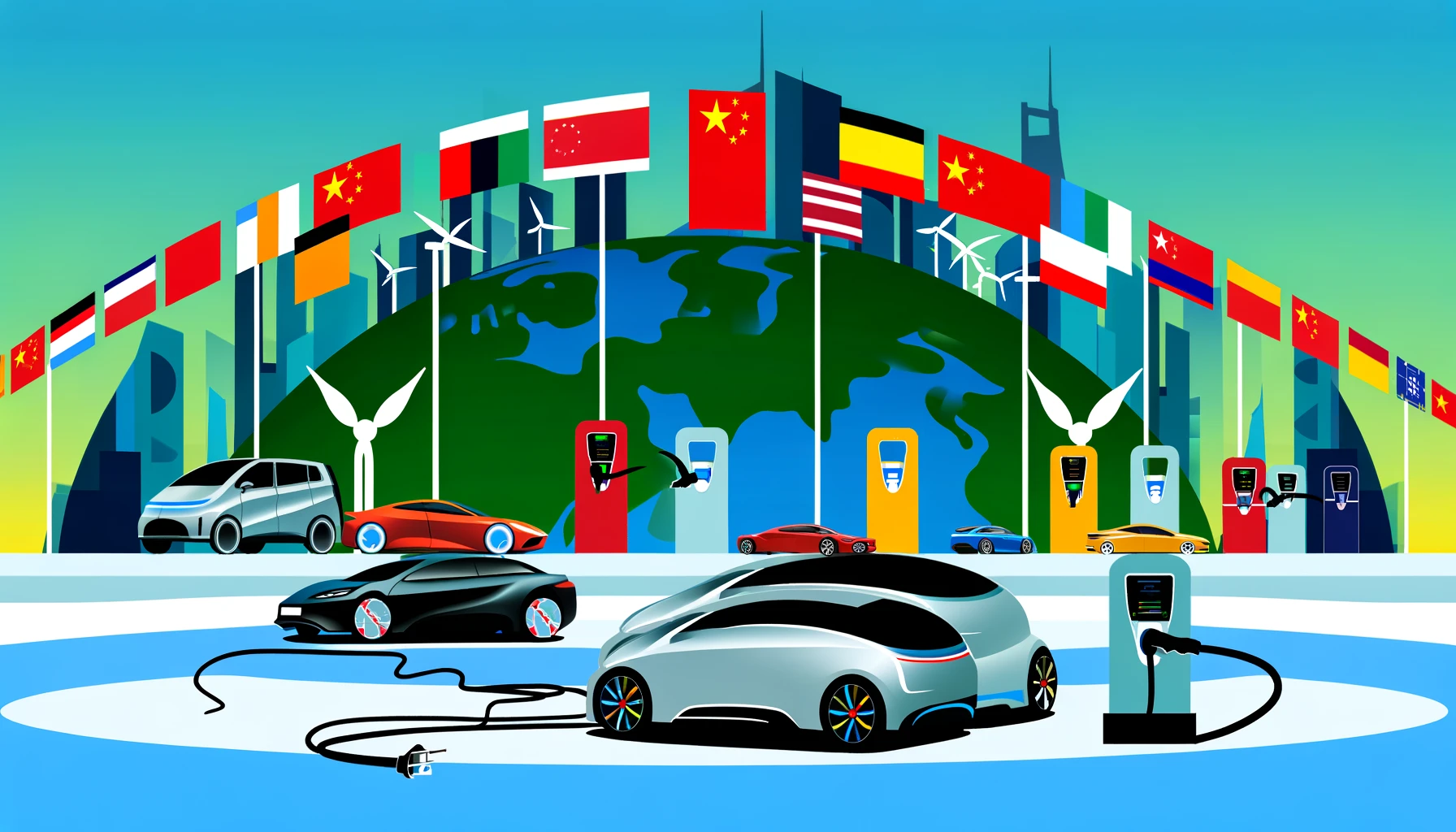
China’s dominance in the electric vehicle (EV) market has reached unprecedented levels, with established car manufacturers and tech upstarts alike vying for supremacy in this rapidly evolving industry. As the battle intensifies, China emerges as the epicenter of innovation, production, and market expansion in the global EV landscape. This article delves into the intricate dynamics of China’s EV sector, exploring its key players, market size, sustainability concerns, and geopolitical implications.
China stands as the undisputed leader in the global EV market, commanding a staggering share of new EV sales worldwide. According to research firm Rystad Energy, a remarkable 69% of all new EVs sold globally in December last year were in China, signaling the country’s unparalleled dominance. With a projected 17.5 million EV sales for the current year, China is expected to account for a substantial 65% of this total, underscoring its overwhelming market presence.
Among the myriad of EV manufacturers in China, BYD (Build Your Dreams) has emerged as the frontrunner, challenging even the likes of Tesla. Founded initially as a battery company, BYD has transformed into China’s foremost EV champion, boasting an impressive track record in both all-electric and hybrid vehicle production. In a significant milestone, BYD became the first company to produce five million new energy vehicles, solidifying its position as a global leader in EV manufacturing. Notably, BYD surpassed Tesla in the last quarter of 2023, further cementing its status as Tesla’s principal competitor.
While BYD leads the pack, the Chinese EV market is characterized by a diverse array of players, reflecting the industry’s dynamism and innovation. With a staggering 129 EV brands in China, competition is fierce, with only a select few managing to carve out a significant market share. Data compiled by Bloomberg reveals BYD’s dominance with nearly 33% of the market, followed by Tesla with over 8%. Other notable contenders include Wuling, Geely, Li Auto, XPeng, and NIO, each offering unique propositions to cater to diverse consumer preferences. From compact city cars to luxurious sedans, the offerings in China’s EV market are as varied as they are extensive.
China’s tech behemoths are also making ambitious forays into the EV sector, aiming to capitalize on the lucrative opportunities presented by the burgeoning market. Companies like Huawei, Baidu, and Xiaomi are leveraging their technological expertise to develop cutting-edge EVs, signaling a convergence of traditional automotive manufacturing and digital innovation. Huawei, despite facing US sanctions, has forged partnerships to produce EVs integrated with its advanced technology, while Baidu focuses on autonomous driving capabilities. Xiaomi, renowned for its smartphones, made a notable entry into the EV space, underscoring the diversification strategies of China’s tech giants.
Despite the rapid growth of China’s EV market, sustainability concerns and market dynamics pose significant challenges to its long-term viability. The proliferation of EV models has led to an intense price war, with manufacturers like BYD and Tesla offering substantial discounts to gain market share. Analysts caution that this aggressive competition may lead to consolidation within the industry, with weaker players facing the prospect of bankruptcy or acquisition. Moreover, the phase-out of purchase subsidies and increased scrutiny over government support raise questions about the sustainability of China’s EV boom.
China’s ascendance in the global EV market has not gone unnoticed, triggering geopolitical tensions and trade disputes with major powers like the European Union and the United States. Concerns over unfair subsidies and market distortions have prompted investigations and retaliatory measures aimed at safeguarding domestic industries. While Chinese EV manufacturers have yet to make significant inroads into the US market, President Joe Biden’s administration has adopted a cautious stance, particularly regarding auto parts imports from China. The World Trade Organization (WTO) has become a battleground for trade disputes, reflecting the geopolitical stakes involved in the EV industry.
China’s electric vehicle revolution represents a seismic shift in the automotive landscape, with profound implications for industry players, policymakers, and consumers worldwide. As China solidifies its position as the world’s largest EV market, the competitive dynamics and geopolitical tensions surrounding the industry are likely to intensify. While challenges remain, including sustainability concerns and regulatory uncertainties, China’s industrial prowess and technological innovation bode well for its continued dominance in the electric vehicle sector. As the battle for EV supremacy rages on, all eyes are on China, the epicenter of the electric vehicle revolution.
Related News:
Featured Image courtesy of DALL-E by ChatGPT
